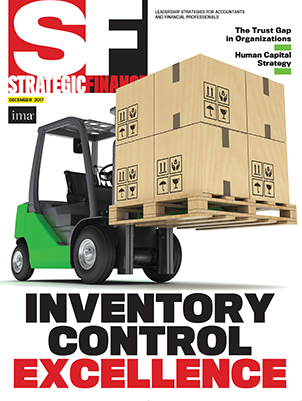If you're lucky during your career, you’ll have an opportunity to step out of your comfort zone to lead a team in something that will be a stretch for you. Based on my experience, if you take this opportunity, you’ll more than likely be in a position to gain great personal experience and to learn excellent skills that will help you throughout your career and life.
My opportunity came when I was a little more than halfway through my career. I accepted a position to move from the United States to Asia for 18 months for a new ERP (enterprise resource planning) system implementation. To illustrate how far I’d need to step out of my comfort zone in accepting this opportunity, I had to rush-order my very first passport in order to make the first project kickoff as we visited our offices in Hong Kong, Singapore, Taipei, and Tokyo.
REGIONAL DIFFERENCES
On my first trip to Asia, I began to connect with the people in the four different countries that I would be working with for the next 18 months. I observed the cultural differences over the first couple of months and learned how to properly communicate one on one and in a group setting. I worked hard to make sure that both parties understood what the other party was trying to communicate. I realized very early that interpersonal communication can differ dramatically across cultures. Sometimes I discovered regional variations and had to adapt the way I conducted myself and the way I interacted with my new work team.
On this project, I was leading the Finance team from our four sales offices in Asia in the conversion from their legacy accounting system to the global company ERP system. None of the staff in Asia or any of the IT and Finance teams located in the U.S. reported directly to me for this project. I was the only finance person that was moving to Asia, so it was up to me to determine and define for myself the best way to lead the Asia team in the corporate mission to implement the global ERP system.
It was my responsibility to communicate with and convince the U.S. team that the requirements I had gathered in Asia were necessary, correct, and properly defined for our accounting and reporting. This wasn’t quite as easy as it sounds because a lot of the requirements I gathered were so different from what the U.S. team had experience with and what the original assumptions were before I started meeting with the Asia staff. Also, some of the requirements weren’t exactly the same for all of the countries we were operating in because of local statutory laws; this increased the need for discussions with all teams as to what really needed to be implemented.
ADAPTATION AND ANALYSIS
Both of these goals were challenging because this was the first implementation of the global ERP system outside the U.S., and we had to overcome many issues, including intercompany sales, intercompany eliminations, multiple currencies, functional currency, value-added tax, and local statutory reporting requirements that sometimes weren’t in line with U.S. statutory reporting.
Something that you must learn quickly when venturing into the unknown, especially in a leadership role, is how to adapt to the situation you’re in and the best method of interacting with the people you’ll be working with. This is a critical skill for leadership success. To meet goals, you must be able to correctly analyze the information you receive in its context. Sometimes, for example, the view you had going in or the way something is said can start you down an incorrect path. For this reason, it’s extremely important to evaluate what you think you heard and understand it from many different angles to make sure that the final product you end up with is correct.
LEADING BY LISTENING
When you’re out of your comfort zone in a totally new environment, you must also be able to hone your listening skills to make sure you really hear and understand what’s being said so that you can interpret the information correctly. It’s also very important to document what you believe you heard and understood and present this back to the source of the information so that any corrections can be made early in the process.
My experience taught me a great deal in areas of the company I hadn’t encountered before. I learned great lessons and developed leadership skills that would inform my future interactions with many people in different regions and functions of the company. I benefited greatly from a personal standpoint; by the end of the project, I considered the people I met friends. If you have the opportunity to accept a leadership role outside your comfort zone, I hope that your experiences are as rewarding to you as mine were to me.
IMA LEADERSHIP ACADEMY
The IMA® Leadership Academy provides leadership opportunities for all members. From leadership assessment to leadership courses offered in person as well as through WebEx to participation opportunities in mentoring, be it reverse or traditional, the IMA Leadership Academy can help you meet your leadership goals and improve your leadership skills. For more information, please visit the Leadership Academy website at www.imanet.org/career-resources/leadership-academy.

December 2017



